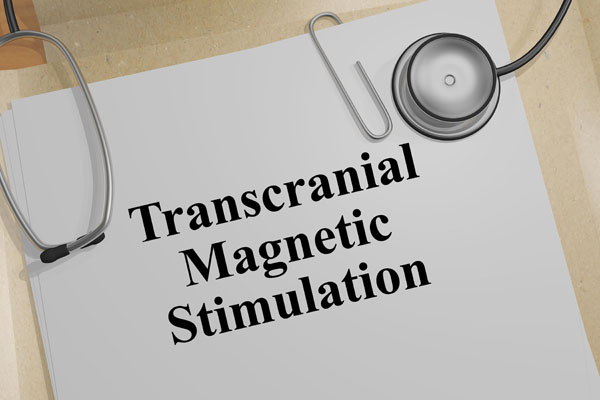 Considering your TMS treatment options for depression? Read on to learn more about this type of treatment. TBS, or theta-burst stimulation, is a novel technique of using transcranial magnetic stimulation (TMS). TBS is dubbed "Express TMS" because TBS sessions are around 10 times quicker than standard TMS treatments.
Considering your TMS treatment options for depression? Read on to learn more about this type of treatment. TBS, or theta-burst stimulation, is a novel technique of using transcranial magnetic stimulation (TMS). TBS is dubbed "Express TMS" because TBS sessions are around 10 times quicker than standard TMS treatments.
TMS Therapy: How theta-burst stimulation works
TBS utilizes a 50-Hz magnetic frequency for only three minutes, unlike traditional TMS, which uses a 10-Hz magnetic frequency for 20 to 40 minutes per session. TBS simulates the brain's neuronal pattern of firing theta waves by sending three fast bursts every fraction of a second.
Learning, memory, and intuition are all thought to be aided by theta brain waves. They direct the mind's attention to messages from the outside world instead of sensory details. Although theta brainwaves are most often associated with sleep, they may also be activated during meditation. Some individuals experience theta brainwaves during activities like bathing or driving on the freeway — times when most people think their finest ideas come.
The two common TBS patterns include:
- Continuous TBS: In this case, the right dorsolateral prefrontal cortex receives continuous stimulation for about 40 seconds, with up to 600 pulses delivered within that period
- Intermittent TBS: Here, the left dorsolateral prefrontal cortex gets stimulated for two seconds, with an eight-second pulse in between stimulations. In the course of 190 seconds, the system delivers 600 pulses
Research support for theta-burst stimulation
In 2018, the biggest randomized, double-blinded TBS study to date was released. The study compared the efficacy and patient experience with TBS and regular TMS using patients aged 18 to 65 from three different hospitals. The research study lasted three years. Dividing the 414 patients into two randomized groups, it treated 205 patients with conventional 10-Hz TMS and 205 patients with 50-Hz TBS.
Both techniques were found to be successful, according to the findings. The researchers analyzed the patients' treatment results using the Hamilton Rating Scale for Depression (HRSD-17). The HRSD-17 scores of those who received regular TMS increased from 23.5 to 13.4, whereas those who received TBS improved from 23.6 to 13.4.
The patients' comfort ratings were the only significant difference between TBS and regular TMS. Due to the higher frequency of TBS therapy, a higher percentage of patients expressed discomfort. On the other hand, patient pain was minor and had no effect on dropout rates; both TBS and regular TMS kept over 90% of their patients throughout the trial.
TBS has been shown to help with executive function
Executive function refers to the neurologically-driven mental control and self-regulation skills that impact a person's ability to create and accomplish objectives. It is highly reliant on prefrontal activity. Inhibition, working memory, organization, and emotional control are examples of executive function abilities. TBS is effective for improving executive function in people dealing with depression.
In conclusion
Multiple studies are backing the efficiency of theta-burst stimulation. To learn more about TMS treatment options, contact our psychiatry office today.
Request an appointment or call NYC Psychiatric Associates at 917-391-0076 for an appointment in our New York office.
Related Posts
Treating major depressive illness with transcranial magnetic stimulation (TMS) magnetic fields is non-invasive and non-systemic. This method, often recommended when conventional therapies such as antidepressant treatment and talk therapy have failed, can produce significant relief from depression symptoms.Some patients undergoing TMS for depression may be reluctant to forego their antidepressant medication throughout the 6-week treatment…
Transcranial magnetic stimulation (TMS) is fast becoming a popular non-invasive depression therapy. With TMS, electromagnetic pulses help stimulate nerve cells without causing any damage to the cells themselves. It has the potential to alleviate the signs of mental and neurological problems. Patients suffering from depression may respond well to this treatment. This article focuses on…
Transcranial magnetic stimulation (TMS) might be an effective option for people whose depression does not respond to medication, or who want to avoid medication side effects. Mental illness is more common than people think, and depression is one of the most prevalent forms of it. Traditional treatments, such as medication or talk therapy, are often…


